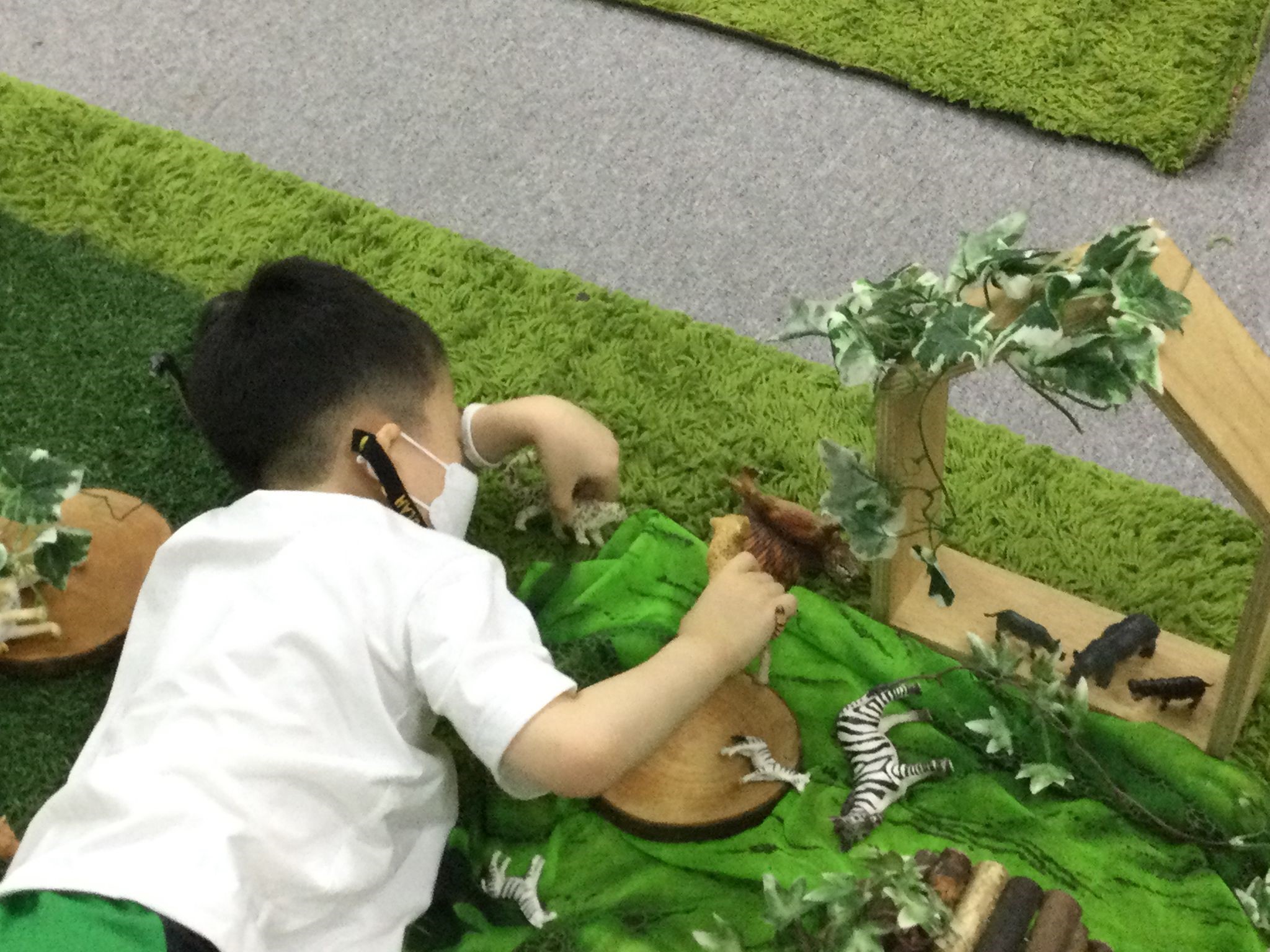Play is an extremely important part of every child’s early development. When children play, they learn. Here at JB, we consider our Year 1 to be an extension of our Early Years. In this week's blog Alexis Farrell, our Year 1 Leader tells us more about how this happens in practice.
Play is an extremely important part of every child’s early development. When children play, they learn. Here at JB, we consider our Year 1 to be an extension of our Early Years.
In Year 1 our students have access to large indoor and outdoor shared spaces beyond their immediate classrooms which allow them to engage in the most wonderful play. However, SOPs such as physical distancing and remaining within class bubbles have restricted these experiences somewhat. The relaxation of SOPs has allowed the learning spaces and play to really come to life in Year 1. In particular, the students are thriving within the Year 1 indoor shared area where the environment has been carefully planned and set up to enable our children to learn practically through play whilst also developing their social, emotional and communication skills and ensuring their levels of well-being and involvement are extremely high.
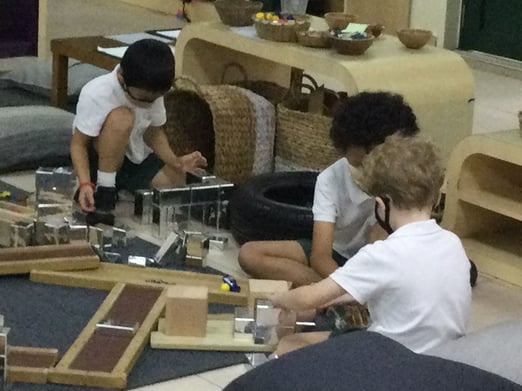 Play gives children limitless opportunities for understanding the world while also teaching them the secret to lifelong learning – that is, learning how to learn. Research has shown that the first eight years of a child’s life is the most important time in their development. In the early years learning is happening at a speed that won’t be equalled again, as children race to build those vital connections in their brains that help them to understand the world around them. In the most basic sense, play is valuable simply because children are motivated by it.
Play gives children limitless opportunities for understanding the world while also teaching them the secret to lifelong learning – that is, learning how to learn. Research has shown that the first eight years of a child’s life is the most important time in their development. In the early years learning is happening at a speed that won’t be equalled again, as children race to build those vital connections in their brains that help them to understand the world around them. In the most basic sense, play is valuable simply because children are motivated by it.
Our teachers apply their knowledge of the children and what they would like the children to learn to plan provocations and provide resources which will challenge the children and enable them to have choice and control whilst also not leaving the learning to ‘chance’.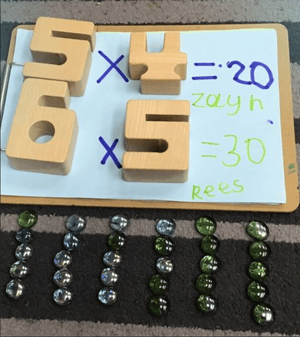 What this means is that you have engaged learners, who take something valuable from every experience, rather than bored children taking direct instruction while looking longingly out the window at the world of play just out of their reach.
What this means is that you have engaged learners, who take something valuable from every experience, rather than bored children taking direct instruction while looking longingly out the window at the world of play just out of their reach.
Through play children have the opportunities to retrieve, transfer and repeat learning. Repetition is key to learning because it helps transition a skill from the conscious to the subconscious.
These photos above show how children have chosen to practise their multiplication skills through play recreating arrays in different ways. This repetition provides the practice that children need to master new skills.
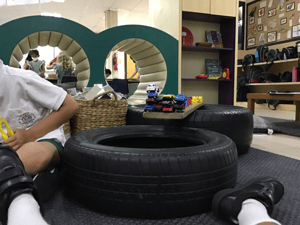
Repetition helps to improve speed, increases confidence, and strengthens the connections in the brain that help children learn. Our teachers support in play to move the learning forward and to gain assessment knowledge to help inform their planning and teaching.
All the areas are planned to support the children in developing effective characteristics of learning through play and exploration, learning actively and encouraging the children to think creatively and critically. The children also have opportunities to progress and succeed in all areas of the curriculum.
In these photos children are playing with familiar resources whilst applying and developing their characteristics of resilience, concentration, motivation to learn, enjoyment, curiosity, confidence, collaboration, problem solving and making links between their learning.
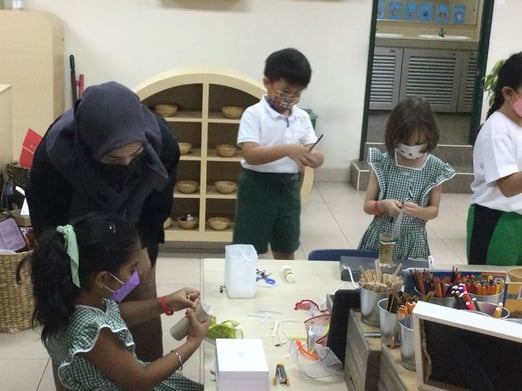
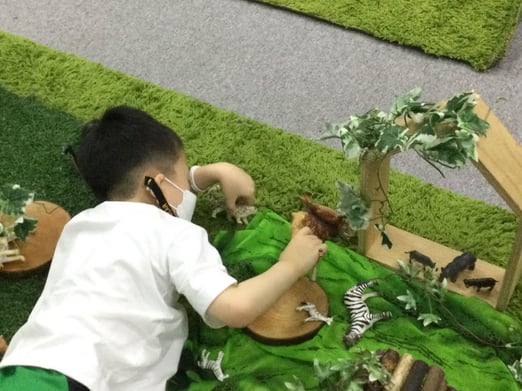
Through their knowledge of the children and the curriculum our teachers and teaching assistants are able to; create a purposeful environment, manage the pace of activities, plan varied and interesting new experiences to stimulate learning alongside opportunities for children to revisit, practise or enjoy a sense of mastery. Once this is in place, the adult's skilled interactions move learning forward and allow the children to flourish.
It is wonderful to see the children so happy in their learning and to hear the excited ‘buzz’ in all areas of Year 1.
Alexis Farrell
Year 1 Leader


